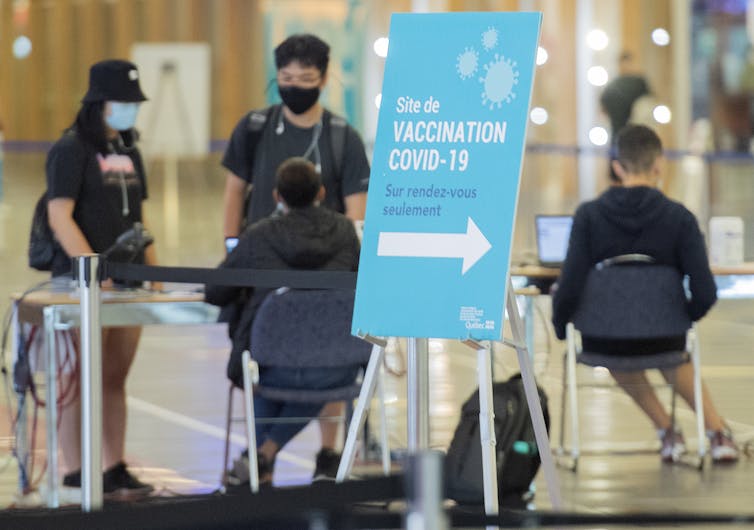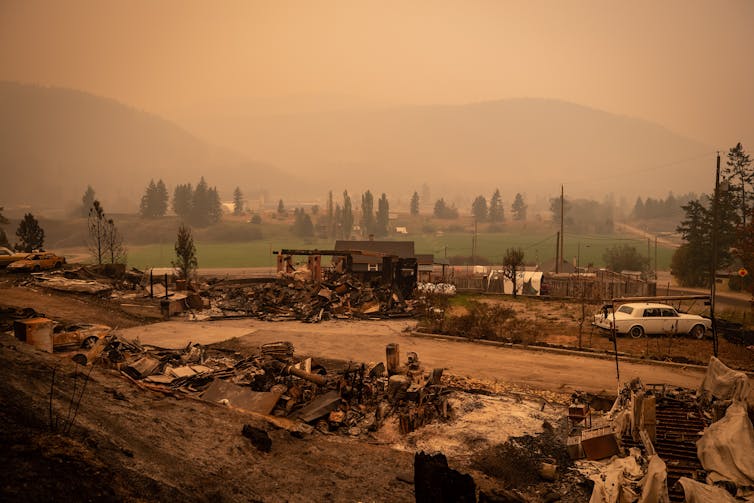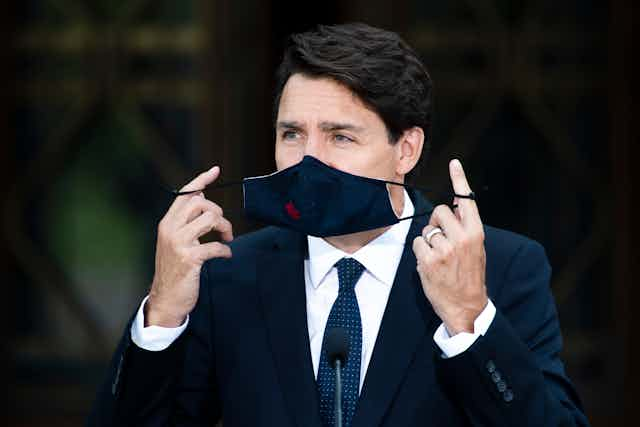Amid layers of uncertainty, Prime Minister Justin Trudeau is asking Canadians to trust him once again in the federal election now underway.
Though it’s been just 664 days since the governing Liberals won a minority in 2019, Trudeau clearly sees an opportunity to secure a third electoral victory and a second majority.
From sunny ways to heat domes, much has changed for both the country and the Liberal party since Trudeau was first elected prime minister in 2015. Though the Liberals continue to lead in the polls, a win is not assured, much less a return to majority government.
This is an awkward time for an election with the country caught between hopes of reopening and fear of a mounting fourth wave of the COVID-19 pandemic.
Given that the Sept. 20 election is entirely voluntary — the Liberals had been able to accomplish just about everything they wanted thanks to opposition co-operation for the past two years — the timing will likely be a key theme early in the campaign. If COVID-19 case counts mount rapidly over the course of the campaign, things will get even more unpredictable.
Voters will likely consider what party and leader they trust most to lead them through a simultaneous reopening and a fourth wave. Effectively, Canadians are looking for a party that can do both: open the economy up while keeping everyone safe.
While provincial governments bear primary responsibility for both regulating economic activity and delivering health outcomes in the country, the federal government nonetheless has a crucial role to play, providing funding and co-ordination and directly regulating areas like air travel and vaccine supply.
Keeping Canadians safe
In order to win, the Liberals will have to convince Canadians they are the best party to provide both pandemic and economic security, while also addressing other longer term issues such as climate change.
The Liberals and their opponents must navigate these tensions in the face of an electorate that remains deeply divided. In the relatively more rural and resource-dependent areas of the country, skepticism about climate change, efforts to control the pandemic and all things Liberal remains high. More urban areas, conversely, look for a party that can promise action on climate change, commit to social progress and support them in the face of both pandemic-related and general economic insecurity.
Six years into government, the Liberals can no longer plausibly promise a new way of doing politics, or bank on the enthusiasm of young voters to propel them to victory. Accumulated baggage, ranging from the SNC Lavalin controversy to pictures of a younger Justin Trudeau in blackface, have left a permanent mark on the party and its leader that likely contributed to being reduced to a minority two years ago.
Read more: Trudeau in blackface: A symptom of Canada's widespread anti-Black racism
Reversals on issues like electoral reform, and indeed the very idea of an election in the middle of a pandemic, have alienated other voters.
Between the polarization and that accumulated baggage, a landslide victory is therefore likely out of reach. Polls currently put the Liberals somewhere between another minority and a renewed, albeit narrow majority. To make the case for more time in office and more power, the Liberals can and will point to a number achievements of the last six years.
Vaccination a wedge issue?
With the pandemic top of mind for many Canadians, the Liberals will point to success in terms of the overall vaccination rate for the country. Canada is now one of the most vaccinated countries in the world.

They can also highlight the range of economic supports the government provided to Canadians, notably the early success of the rapid Canada Early Response Benefit (CERB) in 2020, along with various financial support since then to different groups. While Conservatives have drawn attention to mounting deficits as a result, it’s not clear that such concerns resonate among those most worried about pandemic and economic security.
Indeed, the election may very well end up being a referendum on how safe Canadians feel in the fourth wave of a pandemic, and which party is best able to keep them safe and economically afloat.
The Liberals have made some recent moves to stake out this ground by embracing a limited federal vaccine mandate for civil servants and air travellers. With Conservative Leader Erin O'Toole emphasizing a commitment to individual choice when it comes to vaccines, the Liberals may have found a valuable wedge issue for the campaign.
Canadians want climate action
Perhaps the most significant long-term accomplishment for the Liberals was setting a national price on carbon for the first time, and doing so in a way that secured federal jurisdiction over the issue going forward.
Given that a solid majority of Canadians have concluded that climate change requires government intervention, every party must demonstrate some competency in order to win support in the vote-rich urban progressive ridings of the country. In fact, a recent poll suggests the climate change is now the top issue for British Columbia voters.

This gives the Liberals a real advantage over the Conservatives in most urban and even many suburban areas of the country. They can point to concrete action, and a series of measurable further changes to come in the form of a rising price on carbon. While climate hawks will call for more aggressive action, no party can say they have done more on the file.
After years of climate skepticism, the Conservatives on the other hand will have trouble convincing many of their sincerity on climate action. The NDP and Greens, meanwhile, have promised bigger targets, but provided fewer details as to how they intend to reach them.
Child-care deals
Other issues matter as well, of course, particularly with regard to affordability. In the lead-up to the election call, the Liberals rolled out a series of agreements to provide child care spaces across the country, with deals now in place in a number of provinces and money on the table for others.
Read more: Canadian election 2021: Will the national child-care plan survive?
This will blunt some of the attacks from the NDP and its leader, Jagmeet Singh, who are building a campaign around even more robust government social spending plans for things like drug coverage and more affordable housing.
Such concrete successes aside, other areas of the Liberals’ record are more cloudy. In the wake of a series of scandals and in the midst of an election most Canadians didn’t want, Trudeau can no longer plausibly promise a change in tone in Parliament.
Those who have been looking for transformative change on issues like electoral reform and Canada’s relationship with Indigenous Peoples are probably disappointed in the government’s performance. On a range of files, they see in Trudeau a leader who is long on symbolism and short on action, promising changes that materialize, if at all, in halting and incremental fashion.
That means Trudeau and his team must solidify their appeal in the urban centres of the country — most notably in and around Toronto, Montréal and Vancouver — and lock in winnable votes with the promise of the reliability of an incumbent: safe handling of the pandemic, steady incremental change on other issues and continued attention to the economic challenges voters face.
Will it be enough? Canadians will find out on Sept. 20.


